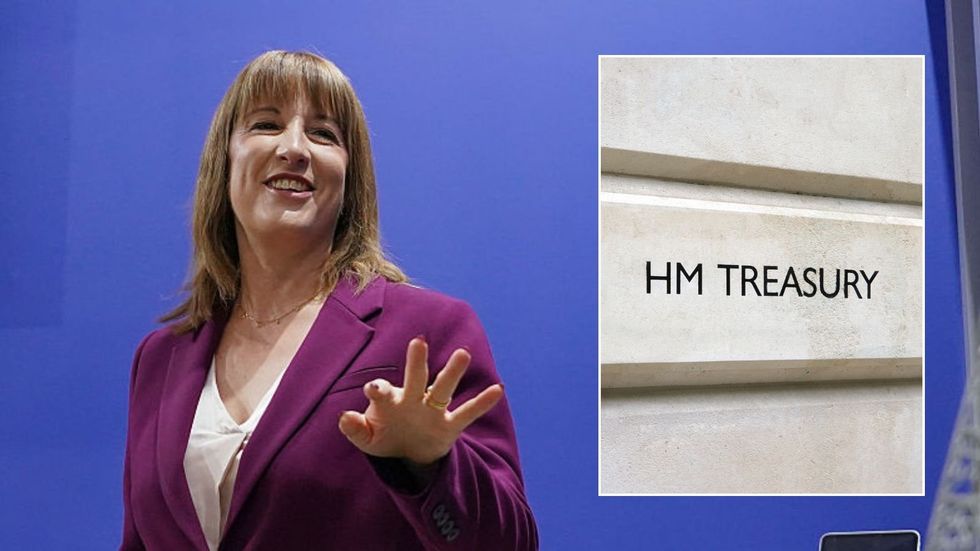Leading economists have advised Chancellor Rachel Reeves that she could generate substantial revenue through tax system reforms while honouring the Labour Governemnt’s manifesto commitments, but cautioned against implementing hasty solutions to address Britain’s fiscal challenges.
The Institute for Fiscal Studies (IFS) has presented comprehensive recommendations ahead of November’s Autumn Budget, as the Government faces mounting pressure to address a potential £50billion deficit in public finances.
The think tank’s extensive analysis suggests the Chancellor should resist merely increasing tax rates without addressing fundamental issues within what they describe as an unjust and ineffective taxation framework.
Furthermore, the IFS emphasised that while raising significant additional revenue remains feasible without violating Labour’s promise to protect the “big three” taxes, achieving this goal would require careful consideration and strategic planning.

Here is a full list of the tax proposals being
- Ending capital gains tax (CGT) relief on death to raise £2.3billion in 2029-30.
- Double council tax rates on the top two property bands to raise £4.4billion.
- Reforming death duties to abolish the additional £175,000 tax-free allowance to raie around £6 billion.
- Increasing the bank levy and the bank surcharge, which combined will raise £2.4billion in 2025-26. A percentage point increase to the surcharge would raise around £400million in 2029-30.
- Tackling non-compliance to narrow a widening corporation tax gap between the amount of tax the Government thinks should be paid and how much it actually collects.

The IFS specifically cautioned against prolonging the current freeze on personal tax thresholds, including National Insurance contributions. Such an extension could generate approximately £10.4billion annually from 2029-30 onwards.
However, extending the freeze on tax allowance would constitute a violation of Labour’s commitment to protect working people from tax increases. The think tank advocated for comprehensive council tax restructuring, highlighting that current property valuations date back to 1991.
According to the organisation, the existing system as both regressive and indefensible, requiring urgent modernisation. Their preferred long-term solution involves replacing both stamp duty on property transactions and council tax with a single recurring property levy based on current valuations.
As well as this, the IFS’ report emphasised that without pursuing authentic reform, taxpayers would ultimately bear the burden of Governmental inaction.
Isaac Delestre, a senior research economist at the IFS and one of the report’s authors, stressed that limiting ambitions to merely securing quick revenue without implementing broader reforms would represent a failure on the Chancellor’s part.
“Almost any package of tax rises is likely to weigh on growth, but by tackling some of the inefficiency and unfairness in our existing tax system, the Chancellor could limit the economic damage,” he stated.
Mr Delesrte warned against what he termed “directionless tinkering and half-baked fixes” in the November Budget, emphasising that a genuine opportunity exists for meaningful change.
“The Chancellor should use this Budget to take real steps down the road towards a more rational tax system that is better geared to promoting the prosperity and well-being of taxpayers,” he added.
LATEST DEVELOPMENTS:
- Rachel Reeves on hunt for Budget buffer as rich Britons urged to ‘contribute more’ in tax
- MONEY POLL: Are you worried about pension savings being taxed? Vote now
- Pension tax raid on the cards as Rachel Reeves floats ‘penalising’ retirees with £7bn HMRC raid

In its assessment, the IFS outlined additional revenue-generating possibilities, including modifications to banking sector taxation.
The think tank also highlighted opportunities in corporate taxation through enhanced compliance measures.
Notably, the IFS additionally advised against implementing restrictions on income tax relief for pension contributions, describing such measures as inadvisable.
They reiterated their opposition to introducing an annual wealth tax, arguing it would unfairly penalise those who save, and cautioned against raising stamp duty rates.
Our Standards: The GB News Editorial Charter







Follow